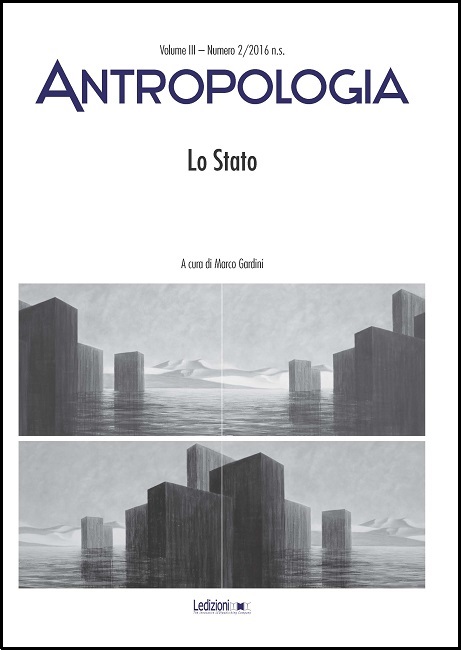Le voci dei migranti in un’aula di tribunale. Analisi etnografica del processo Sabr (Lecce)
DOI:
https://doi.org/10.14672/ada2016754%25pParole chiave:
migrazione, lavoro, sfruttamento, StatoAbstract
Lo sfruttamento della manodopera migrante nel settore agricolo italiano anima il dibattito pubblico e politico da circa dieci anni, con un’intensità sempre più crescente. I cosiddetti “nuovi schiavi” che popolano le campagne del nord e del sud Italia raramente appaiono in grado di opporsi in maniera efficace a un sistema di sfruttamento della manodopera e di caporalato ben organizzato. Il caso studio presentato in questo articolo sembra ribaltare questa rappresentazione retorica: il 31 gennaio 2013 ha infatti avuto inizio, presso l’aula bunker del tribunale di Lecce, il processo Sabr, nato dalla denuncia di braccianti provenienti dal nord Africa e dall’Africa occidentale a carico di proprietari di note aziende agricole nell’area di Nardò e di caporali tunisini e sudanesi. L’analisi etnografica dei dibattimenti in aula, avvenuta tra ottobre 2013 e gennaio 2014, intreccia le storie di vita dei braccianti coinvolti e le posizioni ufficiali di avvocati e pubblico ministero, al fine di rendere un racconto corale in grado di mostrare la complessità dei punti di vista e delle posizioni formali (e informali) di un procedimento giudiziario. Attraverso l’osservazione delle singole udienze, le testimonianze dei lavoratori e degli altri attori istituzionali (avvocati, pubblico ministero e comandante dei Ros) e la consultazione del materiale redatto a seguito dell’inchiesta che ha dato origine al processo stesso, si cercherà di evidenziare come le aspettative e gli immaginari di cui ognuno dei protagonisti si fa portatore contribuiscano a costruire un’idea di Stato, di giustizia e di legalità tutt’altro che astratti e unitari.##submission.downloads##
Pubblicato
2016-10-20
Fascicolo
Sezione
Articoli
Licenza
- Gli autori mantengono i diritti sulla loro opera e cedono alla rivista il diritto di prima pubblicazione dell'opera, licenziata sotto una Licenza Creative Commons - Attribuzione che permette ad altri di condividere l'opera indicando la paternità intellettuale e la prima pubblicazione su questa rivista.
- Gli autori possono aderire ad altri accordi di licenza non esclusiva per la distribuzione della versione dell'opera pubblicata (es. depositarla in un archivio istituzionale o pubblicarla in una monografia), a patto di indicare che la prima pubblicazione è avvenuta su questa rivista.




